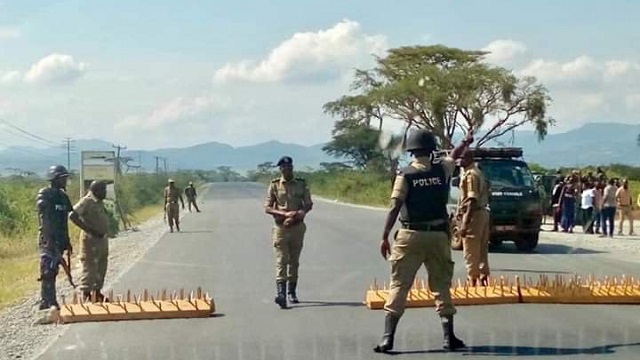Summary:
- Uganda’s 2024 Census begins soon, with roadblocks on highways from midnight to count the “floating population” like street children and travelers. UBOS Director Chris Mukiza emphasizes the importance of accurate information and warns against hindering the process. Minister Amos Lugoloobi outlines the census’s key questions, focusing on population, residency, possessions, and household size.
Uganda’s 2024 National Housing and Population Census kicks off in a few hours time, and starting midnight, roadblocks will be staged on highways where individuals in transit will be counted. They will categorized as the ‘floating population’.
Chris Mukiza, the Uganda Bureau of Statistics-UBOS Executive Director said that with the support of security agencies, roadblocks will be established on highways from midnight for mandatorily counting of people in transit.
According to Mukiza, the roadblocks shall be mounted on major roads across the country, targeting the “floating population” such as street children, bus and truck drivers, and passengers.
Let Us Build Your Online Success!
We are the experts in creating visually stunning and functional websites. With reliable hosting and exceptional customer support, we bring your vision to life. Join hundreds of happy clients who trust us!
Get Started Now📞 Call/WhatsApp: +256 207 800 192
He added that those who will be counted while in transit will be issued with a card to eliminate the possibility of double-counting.
Mukiza warned that the law empowers the UBOS Executive Director to sue any person who gives wrong information or prevents others from giving the right information.
“Though the law gives us the mandate to do so, we shall not activate this section. We will mainly appeal to the Ugandans to do it willingly, but it will be relevant where some cults are prohibiting others from offering the required information,” he said.
Addressing journalists about the government’s readiness for the exercise, Amos Lugoloobi, the State Minister in charge of Planning, noted that the census is mainly looking for answers to five key questions. These include the country’s population, where people reside, what they own, and the size of the household.
According to Lugoloobi, the head of the household will be the main respondent to the questions, and in case they are absent, they will be contacted by phone call, if the most knowledgeable person found at home fails to satisfactorily answer the questions.

